Bioethics Forum Essay
Terri Schiavo’s Legacy
Many think that the decision 20 years ago to permit Terri Schiavo to die was a victory for medical choice. On the contrary, her death triggered a series of events that have corroded individual control over medical care in the United States.
Left completely and permanently unconscious by a cardiac arrest, Schiavo’s life was sustained for over a decade by medical technology in a long-term care facility in Florida. When it became clear, back in 1998, that Terri would never regain consciousness, her husband, Michael, asked that her feeding tube be withdrawn and that she be allowed to die. He said Terri would not want to exist in a permanently unconscious state. Terri’s parents, the Schindlers, disagreed and with the support of pro-life groups, maintained, falsely, that she was conscious while lodging many court proceedings against Michael’s authority, first in Florida and then in federal courts.
The Schiavo case involved 14 appeals and numerous legal motions, petitions, and hearings in the Florida courts; five suits in federal district court; extensive political intervention by the Florida state legislature, Florida Governor Jeb Bush, the U.S. Congress, and President George W. Bush; and four denials of certiorari from the Supreme Court of the United States in response to appeals. This was likely the most closely examined end-of-life case in the history of medicine. Each and every time, Terri Schiavo’s values, as espoused by her spouse who knew her best and had legal authority, were, rightly, supported. After seven years of fighting Terri Schiavo was allowed to die on March 31, 2005.
Terri Schiavo’s tragic saga mobilized a large contingent from the prolife movement in the U.S. and overseas, which, of course, meant certain politicians would follow their lead. We saw a prominent senator and transplant surgeon, Bill Frist, violate basic medical ethics when he stood on the floor of the Senate to make diagnostic claims about Terri Schiavo based solely on videotaped footage—which turned out to be misleading. We even saw George W. Bush drop everything on Palm Sunday and fly back to Washington to sign a so-called relief act, a specific law written just for the Schindlers to enable them to take their case to federal court. All these political machinations merely prolonged the tragedy.
The Schiavo affair quickly became a battlefront in the larger culture war raging over personal choices at both the beginning of life and at the end of life. In retrospect, Schiavo launched a new, emboldened prolife movement, one that would eventually lead to conservative rule in state houses across the U.S. and the election, twice, of Donald Trump. The seeding of a new ultraconservative judiciary would support a strategic assault on medical privacy that would eventually lead to the end of legal abortion protection in Dobbs. Schiavo established a dangerous precedent in which politicians determined medical care, not patients and not their spouses.
Today we see how the culture wars are being played out minute by minute on social media by policymakers and the current president. Where there is political gain to be had, politicians are eager to exploit personal tragedies, spinning narratives that serve their ideology. The Schiavo case set a new precedent for how personal medical decisions can be politicized and weaponized for broader ideological battles and victories in the culture wars. Evidence and science now take a back seat to politics, emotional appeals, and spin.
We hear the echoes of Schiavo’s death in today’s debates over reproductive rights, end-of-life care, transgender care, vaccinations, and medical privacy more generally. The end of Roe v. Wade, the continued attacks on gender-affirming care, and the looming threats to contraceptive access all stem from the foundational fight over Terri’s bodily autonomy. Today’s autocratic playbook remains unchanged from those days: intrude upon and weaponize deeply personal medical decisions, rally the support of a mob, enact draconian regulations, ignore what medicine and science have to say.
Few knew it then, but the case of Terri Schiavo was a canary in the coal mine, warning us of bad things to come. The fight to honor Terri’s values in death was won, but the broader battle over government intrusion versus health care privacy rages on.
Arthur Caplan, PhD, is the head of the Division of Medical Ethics at the NYU Grossman School of Medicine and a Hastings Center Fellow. @ArthurCaplan artcap.bsky.social
Dominic Sisti, PhD, is an associate professor in the Department of Medical Ethics & Health Policy at the University of Pennsylvania’s Perelman School of Medicine and a Hastings Center Fellow. dominicsisti.bsky.social
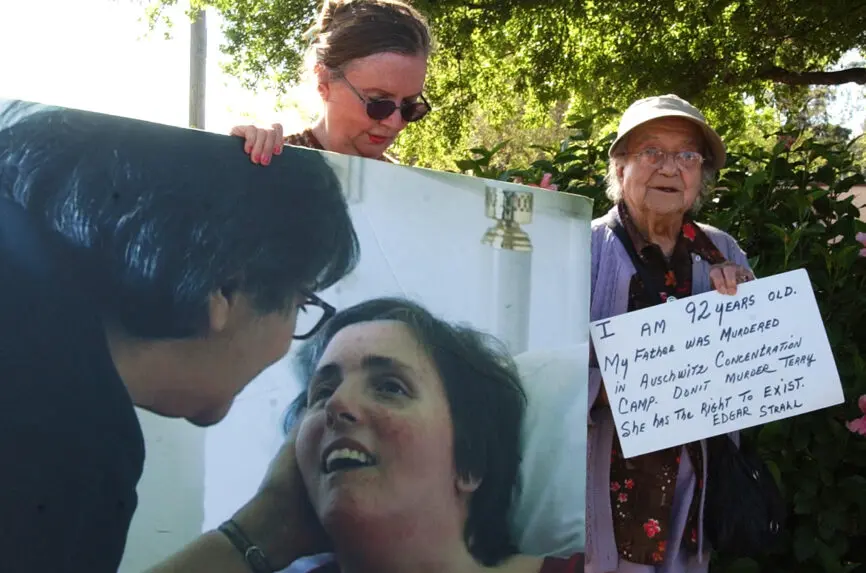

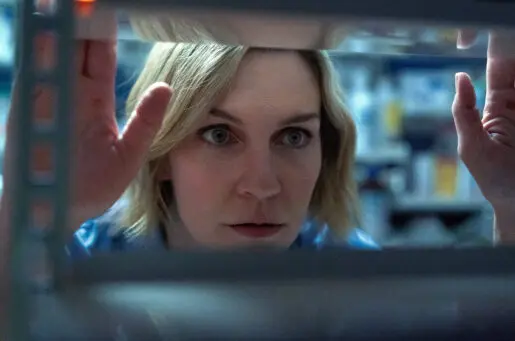



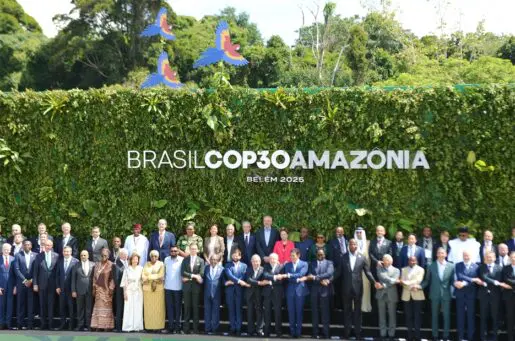
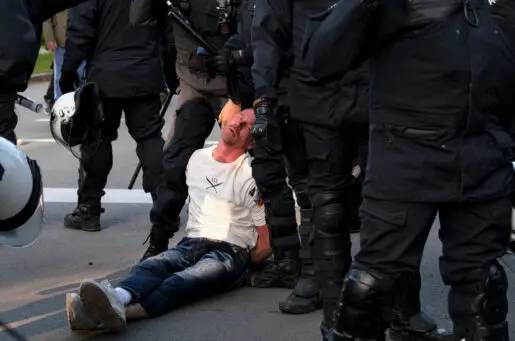


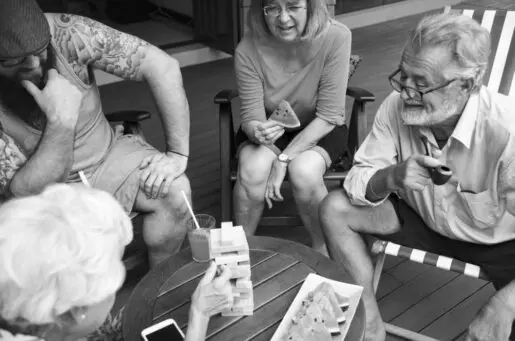



Well done, and thanks for this essay. The weaponization of moralizing ideologies reducing personal choices seems to be a mark of the times generally, and not just in medical choices.
I’d be interested to know the dollar cost of this fight and how much was paid by the taxpayers.
I dont know but a lot–millions
“We even saw George W. Bush drop everything on Palm Sunday and fly back to Washington to sign a so-called relief act, a specific law written just for the Schindlers to enable them to take their case to federal court. All these political machinations merely prolonged the tragedy.”
—-
You are right Art. There was alot alot of legal action in the Terri Schiavo case from every court in the land except SCOTUS (Just denials.)
I found the following the most disturbing aspect of the law surrounding the Schiavo case. It was handed down by the Federal Appeals Court just before Terri died. Here is the most distrubing part of the decision:
……
The Court has specifically
held that the substantive due process component of the Due Process Clause does
not require a state to protect its citizens against injury by non-state actors.
DeShaney v. Winnebago County Dep’t of Social Serv., 489 U.S. 189, 195, 109 S.
Ct. 998, 1003 (1989) (“[N]othing in the language of the Due Process Clause itself
requires the State to protect the life, liberty, and property of its citizens against
invasion by private actors.”); accord Lovins v. Lee, 53 F.3d 1208, 1209 (11th Cir.
1995) (no general substantive due process right to be protected against criminals
even when they were wrongfully released). As we have already explained, the
defendants are not state actors for present purposes.3
—-
Basically the court said that Michael Schiavo (Terri’s husband) and George Greer (Judge) were INVADERS and that everything the were doing to Terri was an INVASION.
BUT, the cout said that no where in the Due Process Clause of the Constitution is the state required to protect it’s citizens from INVADERS.
In other words, because Michael and Judge George were not “agents” of the government, there was really nothing that could be done.
This certainly got then Congressman Mikie Pense’s attention when he issued his official statement on Terri Schiavo…
Washington, Apr 1 – U.S. Congressman Mike Pence issued the following statement regarding the death of Terri Schiavo:
“I grieve with the Schindler family and millions of Americans at the death of their precious daughter, Terri Schiavo. With her death, America lost not only a precious citizen, America lost its innocence.
“Although Terri Schiavo’s life may be over, the debate over the rights of incapacitated Americans is not over. Congress must right this wrong by ensuring that incapacitated Americans may not be deprived of their inalienable right to life without the assurance of the due process of law that our federal courts were established to protect. This will be Terri Schiavo’s legacy.”
—–
Due Process should have given to Terri…
Legal Counsel – She never had a lawyer. Terri committed no crime therefore she had no right to legal counsel. (Compotent Legal Counsel – Assistance of legal counsel didn’t apply.)
A Heightened Evidencdary Standard – Terri was never given beyond and to the exclusion of reasonable doubt in all material facts and evidence established in the case. Again, Terri committed no crime.
Free from Cruel and Unusual Punishment – Since Terri’s feeding tube removal wasn’t “punishment”, it didn’t apply.
Again, since Michael and Judge Greer were “invaders” (Private Parties and not “Agents” of government.), the state had no duty under the law to protect Terri from harm or injury.
There was no winning for anyone. There was no sign of recovery. I found it truly unsettling to learn of the transplant surgeon Bill Frist, a medical professional, using video footage as justification for his misleading diagnostic claims. Terri was diagnosed with a persistent vegetative state. A medical provider, out of all people, should know that video footage is not only subjective but also not a legitimate source to determine signs and symptoms when far more accurate and objective tools were available. You can’t pick and choose what to accept.
The accident was tragic for her husband and for her parents, but it is not emphasized enough that it was most tragic for Terri. No privacy. No autonomy. I agree that Terri’s situation was weaponized for political gain. Even though various groups supported both sides, in the end Terri was the one who was tossed and turned from one case/appeal to another. Terri is no longer alive, but recordings of her suffering in the hospital were broadcast across the nation, and her story is perpetuated in time.
I don’t believe anyone desired to “end” Terri’s life. But to prolong it, what would we have gained other than guaranteed suffering? What quality of life was there? Twenty years later, there are no technological advances or medical discoveries that can reverse an irreversible injury—only new methods to confirm it. Even if it wasn’t a persistent vegetative state, there was no guarantee that she would achieve any amount of recovery that she would have found acceptable for continuing care. It is worth mentioning that her autopsy did confirm what the doctors initially diagnosed: massive and irreversible damage. Ultimately, regardless of whether the diagnosis was accurate or not, what we know is that Terri would not have wanted to continue living in that state.
Michael Schiavo and Terri “won,” and her story brought advance directives and living wills into the limelight. But with more and more individual rights being taken away on a legal stage, I do fear that nothing guarantees autonomy or privacy.